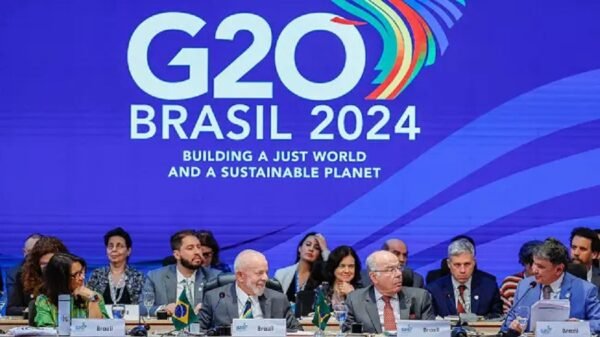G20 Agrees On Scaling Up Climate Finance, But Fails To Address Fossil Fuel Transition
 The recent G20 summit held in Rio de Janeiro on November 18, 2024, concluded with a communiqué that has drawn significant criticism for its lack of commitment to phasing out fossil fuels, despite acknowledging the need for increased climate finance.
The recent G20 summit held in Rio de Janeiro on November 18, 2024, concluded with a communiqué that has drawn significant criticism for its lack of commitment to phasing out fossil fuels, despite acknowledging the need for increased climate finance.
Key Outcomes of the G20 Summit
Climate Finance CommitmentThe G20 leaders recognized the urgent need to scale up climate finance, particularly for developing nations, emphasizing that trillions of dollars are necessary to combat climate change effectively. They reiterated their support for a successful outcome at the upcoming COP29 in Baku, where negotiations will focus on establishing a New Collective Quantified Goal (NCQG) for climate finance. The communiqué highlighted the importance of both public and private investment in achieving these goals, although it fell short of specifying how much funding would come from public sources versus private investments.
Omission of Fossil Fuel TransitionDespite the discussions at COP28 regarding transitioning away from fossil fuels, the G20 communiqué notably lacked explicit language on this critical issue. While it mentioned phasing out “inefficient fossil fuel subsidies,” it did not reaffirm commitments to a broader fossil fuel phase-out or detail a roadmap for such a transition. This omission has raised alarms among climate activists and negotiators, who argue that without addressing fossil fuel dependence, global climate targets remain unattainable.
Reactions and Implications
The response from environmental advocates has been overwhelmingly negative. Harjeet Singh, Global Engagement Director of the Fossil Fuel Non-Proliferation Treaty Initiative, described the G20’s failure to address fossil fuels as a “stark failure in leadership.” Activists are concerned that without clear commitments to reduce reliance on fossil fuels, the ongoing negotiations at COP29 will struggle to make meaningful progress, potentially leading to catastrophic climate outcomes.
Moreover, there is a growing frustration regarding the vague wording surrounding climate finance commitments. Many developing nations have emphasized that any financial support must come as grants rather than loans to ensure true climate justice. The lack of specificity in funding sources and amounts has led to skepticism about whether the G20’s promises can be translated into actionable results at COP29.
G20 Agrees on Scaling Up Climate Finance: The G20 leaders have committed to increasing public and private climate finance, particularly aimed at supporting developing countries. This commitment aligns with the goal of achieving a successful New Collective Quantified Goal (NCQG) outcome at the ongoing COP29 in Baku, Azerbaijan. The leaders emphasized the necessity of scaling up climate investments, with a focus on mobilizing trillions in funding to address climate challenges effectively.
Failure to Address Fossil Fuel Transition: Despite the agreement on climate finance, the G20 communique notably omitted any reference to transitioning away from fossil fuels. This absence has drawn significant criticism from climate activists and observers at COP29, who argue that it undermines previous commitments made at COP28 in Dubai, where a phase-out of fossil fuels was explicitly discussed for the first time in three decades of climate negotiations. Activists have labeled this omission as a “stark failure in leadership,” highlighting that without a clear commitment to phasing out fossil fuels, global climate action remains severely compromised.
Concerns Over Political Leadership: The lack of specific language regarding fossil fuel transition has raised fears of a stalemate in climate negotiations, particularly as some nations, influenced by major oil producers like Saudi Arabia and Russia, appear resistant to making strong commitments. The Climate Action Network has called for urgent political leadership rather than a mere reiteration of past agreements, emphasizing that the current moment demands decisive action to avoid catastrophic climate outcomes.
The G20 has made strides in committing to enhanced climate finance, its failure to address the critical issue of fossil fuel transition poses significant challenges for effective global climate governance moving forward.

